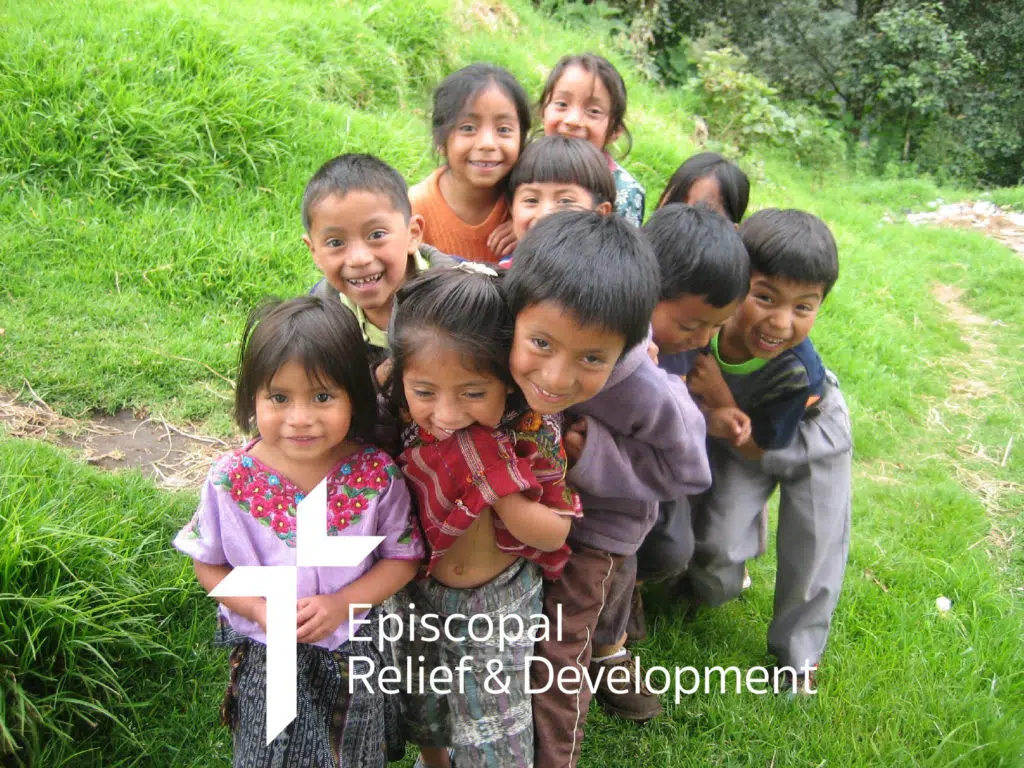Looking over your life up to this moment, what memories stand out? Perhaps, happy memories come first: a wedding, a child being born, finishing school, maybe starting a dream job or going on an amazing vacation. Now, think about which memories are the most critical or the most life-changing, moments that proved to be essential to survival? For most of us, we don’t remember those critical memories – because they happened in our first 1,000 days of being alive.
Research shows how critical the first 1,000 days are in building a foundation that will help a child prosper throughout their entire life. These first 1,000 days can set the tone for a lifetime of good health, in which proper access can help prevent chronic illnesses or interruptions in growth. They can determine which resources will be available for education, shelter, food and financial aid. And they set the stage for a strong support network – be it from family or community. These are the cornerstones that help a newborn grow into a healthy child, on track to continue thriving as they become a mature and supported adult.
Episcopal Relief & Development knows and understands the importance of an individual’s first 1,000 days. Their mission is to facilitate programs that lead to healthier, more fulling lives for those living in struggling communities. They believe all children deserve the chance to thrive – an outlook we all can get behind.
To build on these vital first thousand days, Episcopal Relief & Development offers programs committed to helping communities nurture children to their full potential. Though it may seem a lofty goal at first glance, their five-pronged approach breaks it down into manageable areas with tangible actions to provide a complete spectrum of help and support for our world’s most important resource: their future, our future.
- Improving food and nutrition
While I and many colleagues battle with the everyday internal fight of choosing a healthy, packed lunch over a quick, less-healthy fast-food option to scarf down at the office, millions of people around the world don’t have the opportunity to make that choice. Episcopal Relief & Development’s programs in this area focus on promoting breastfeeding and ensuring families have greater access to truly nutritious food.The organization has adopted the U.N.’s 2030 goals, including the plan to end hunger. Episcopal Relief and Development “works with local partners to provide training and tools to strengthen community-based agriculture” efforts to help meet these goals. As part of their “ONE THOUSAND DAYS OF LOVE” campaign, the organization is raising money to expand programs that benefit children, like those providing resources and care guides for animals and crops to ensure sustainability success in communities across Africa, Southeast Asia and Central America. To ensure a child will thrive, food is often the number one place to start – proper nutrition means a chance at survival and strength to grow.
- Protecting health and preventing disease
This topic is top of everyone’s mind at the moment, as COVID-19 dominates the news cycle, hand sanitizer and toilet paper fly off the grocery store shelves and we all relearn how to properly wash our hands. While the new coronavirus is certainly a health concern, imagine needing to protect your children from deadly diseases we have the privilege of rarely worrying about in the Western world, such as malaria or life-ending chronic diarrhea illnesses.Access to clean water, vaccinations, mosquito nets, and proper sanitation and hygiene education can make all the difference in the prevention and treatment of these deadly diseases affecting so many children around the world. Initiating these health care plans and programs protects children and helps them develop immunity, increasing their chance of survival, both in terms of local afflictions and worldwide pandemics. These measures make a huge difference not only in the health of the children, but also for their primary caregivers, which leads us to our third point …
- Empowering parents
Episcopal Relief & Development knows that promoting early childhood development starts in the home, but that can be challenging for parents who did not have a nurturing, playful and stimulating experience themselves. When parents are provided for, their children will be provided for. Supporting parents means giving them the peace of mind and confidence to work and effectively raise a family. Think about how family and friends come together at a baby shower for the mother-to-be, presenting gifts of necessities to give her a leg-up in becoming a mother. Episcopal Relief & Development’s programs are kind of like an ongoing baby shower for families in developing areas, providing essential life-building tools to help new parents start on the right foot.Episcopal Relief & Development provides training through a volunteer corps to work with primary caregivers and encourage playgroups to strengthen the cognitive, language, social-emotional and motor skills development of children. These early-instilled support systems will also help children and parents transition smoothly into early education without a hitch.
- Creating economic stability
Part of supporting and empowering parents includes easing worries over financial burdens and stress. Financial concerns often overshadow and affect all other areas of life. It is difficult to create nurturing environments, prepare healthy meals and maintain sanitary conditions when there isn’t any money coming in. And in cases when floods or natural disasters wipe out crops, which could be the main commodity in a developing community, parents need other means to obtain the finances necessary to put food on the table.Episcopal Relief & Development has programs to create economic opportunities for parents and primary caregivers including Savings with Education groups, financial and business training, and loans for small business through village banks and cooperatives. These programs can smooth tension and give parents control financially over how they provide means for families.
- Protecting families
Finally, Episcopal Relief & Development offers counseling and other services to prevent domestic and child abuse, ensure adequate child care, train leaders to put an end to violence and support people in crisis situations. Violence can uproot families that already rely on the bare minimum to survive. In times of violence, homes, crops, and even their essentials can be taken or left behind.Teaching and implementing methods to approach confrontation in healthy, communicative ways can combat violence at home. In the bigger picture, it can help reduce tension in communities and increase safety, which effectively aids in making the other four cornerstones succeed. Episcopal Relief & Development often holds talks and initiatives that tackle violence against women, or gender-based violence, to show how we can get involved and share stories from which all can learn. Speaking out is a critical element to help prevent and quell violence; through their organization, it could even help prevent trafficking.
How to Get Involved
After your first 1,000 days, you were not yet 3 years old. But your first 1,000 days may be remembered as a time when you were safe, cared and provided for, and loved. It’s important that each child around the world has the same start in their lives, so the subsequent 1,000, 10,000, and even 100,000 days are filled with confidence, strength, and love.
Children naturally are born with a will to live and figure things out for themselves. Take a look at this story, “Lessons from my three-year-old.” It’s a great example of a child wanting to take charge, thanks to a healthy upbringing with the right resources available to make them feel empowered. Children need a foundation of these five elements to raise them up and raise them to be strong and independent and healthy.
If helping children thrive is important to your organization, consider a weeklong employee engagement program focusing on these five key areas each day of the week. From there, the only way up is to grow.
Global Impact can help design activities and recruit speakers around nutrition, health, parental empowerment, economic stability and protecting families. These values and lessons are not just useful tools to help beneficiaries of Episcopal Relief & Development – you may be able to take them home to your own families and implement fundamental methods to ensure your own children grow up provided for and empowered. This opportunity will help countless families, starting with your own. Reach out to our team today!





